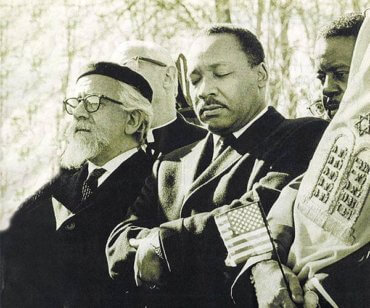
Is It True That A Man Can Divorce His Wife For Burning Food, But She Can’t For Getting Beaten?
Dear Jew in the City,
In My Unorthodox Life, Julia says in Judaism a man can divorce his wife if she burns his food, but she can’t divorce him even if he beats her. Is this really true?
Thanks,
Hana
Dear Hana,
First of all, don’t believe everything you see on TV.
The burnt food thing is a Talmudic example but I defy you to find any comparable example in actual practice. In tractate Gittin (90a-b), there’s a three-way debate as to the reason for which a man may divorce his wife. One opinion says for a major reason (e.g., promiscuity), the second says for a minor reason (e.g., she burns his food) and the third says for no reason at all. Not everyone takes the “burnt food” thing at face value. According to some commentators (such as Yachin on Mishna Gittin 9:10), it means that the wife is acting passive-aggressively, burning his food intentionally, in order to aggravate him. According to the Chasam Sofer, it’s a euphemism meaning that he finds her distasteful. Even if you take it at face value, the Sages legislated around that position by instituting the kesubah (marriage contract), the entire purpose of which is to keep men from frivolously divorcing their wives by imposing huge financial disincentives.
On the other hand, while women cannot unilaterally divorce their husbands, a woman whose husband strikes her absolutely can go to Beis Din and sue for divorce.
This is the difference between halacha – the legal process – and halacha l’maaseh – what you’ll actually see in practice. Halacha represents a work in progress; it’s how the law develops. You’ll usually find halacha l’maaseh much more intuitive than the transcripts of conversations that took place literally millennia ago.
Sincerely,
Rabbi Jack Abramowitz, JITC Educational Correspondent
Editor’s note: While the Torah was given in a vastly different world, over 3000 years ago, and laws of marriage and divorce were progressive then, in today’s world, their imbalance is certainly troubling. This is why Jewish law has a system of being able to update over time (within certain parameters). In the Middle Ages, the Nachlas Shiva was a document that was created to even out the divorce process. This document was then used as the framework for the halachic prenup which is a modern day solution for making divorce safe for women and men alike. Read more here.
If you found this content meaningful and want to help further our mission through our Keter, Makom, and Tikun branches, please consider becoming a Change Maker today.







